Blog Posts Tagged CFD Module
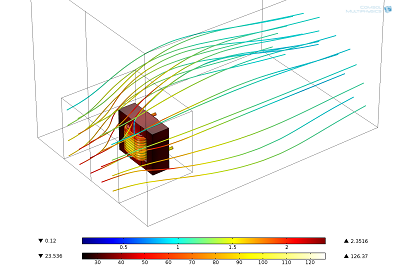
Modeling Convective Cooling of Electrical Devices
We developed a model that includes all of the important details of thermal management in a high-power electrical device. To do so, we needed to use high performance computing with hybrid modeling.
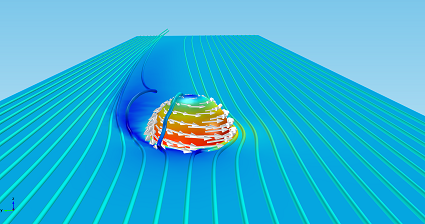
The Magnus Effect and the FIFA World Cup™ Match Ball
In celebration of the 2014 FIFA World Cup™, we show you some interesting CFD analyses of the FIFA World Cup™ match ball — and how it exhibits the Magnus effect when in play.
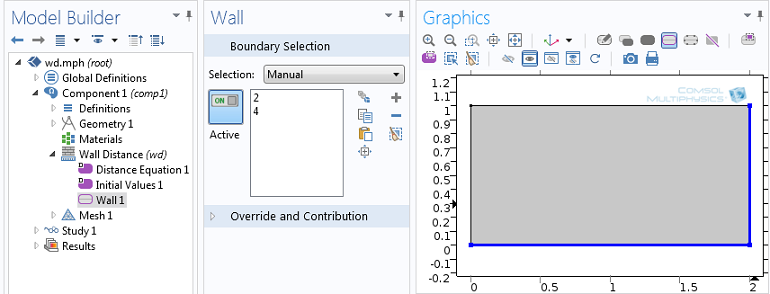
Tips for Using the Wall Distance Interface
The Wall Distance interface can be used to calculate the distance to the nearest wall or detect when a moving object will hit a wall. Learn how to implement this interface in CFD simulations.

Characterizing the Flow and Choosing the Right Interface
No matter the focus of your modeling project, you have probably had to consider fluid flow at some point. Here, we discuss how to characterize the flow and choose the correct CFD interface.
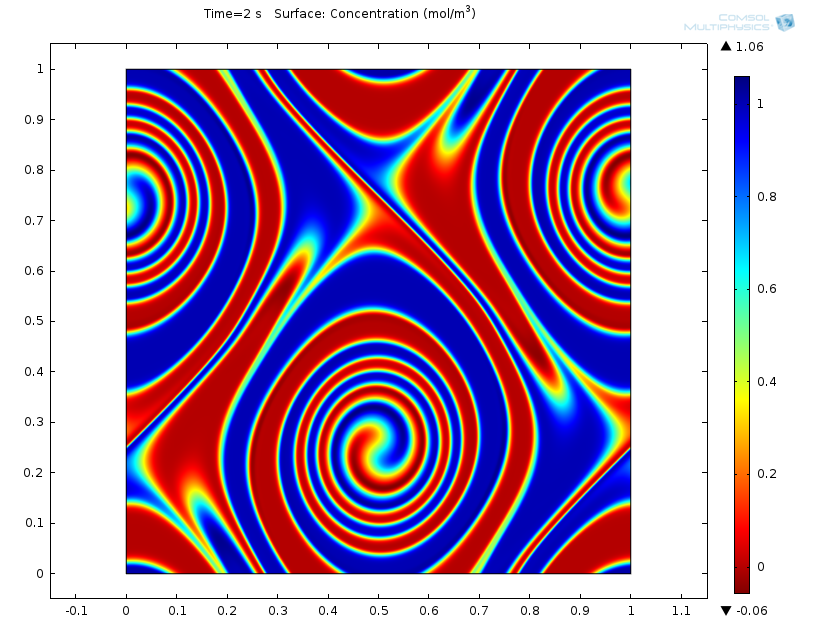
Simulating Kelvin-Helmholtz Instability and Climate Dynamics
Q: What do heated soap bubbles, wavy clouds, and Jupiter’s Great Red Spot have in common? A. An unstable motion called Kelvin-Helmholtz instability.
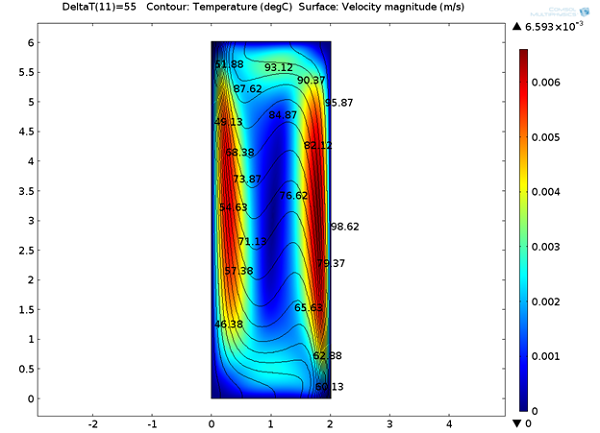
Buoyancy-Driven μPCR for DNA Amplification
True crime + simulation: The more DNA in a sample, the easier it is to accurately test and identify biomolecules, cells, and even an entire person during forensic investigations.
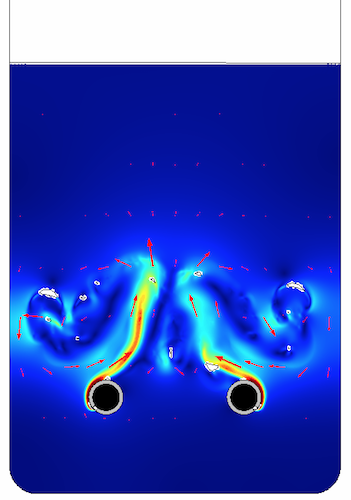
Improving Bioreactor Performance with COMSOL Multiphysics
A guest blogger from Continuum Blue gives an overview of what the consultancy can do using simulation for their biomedical engineering clients.
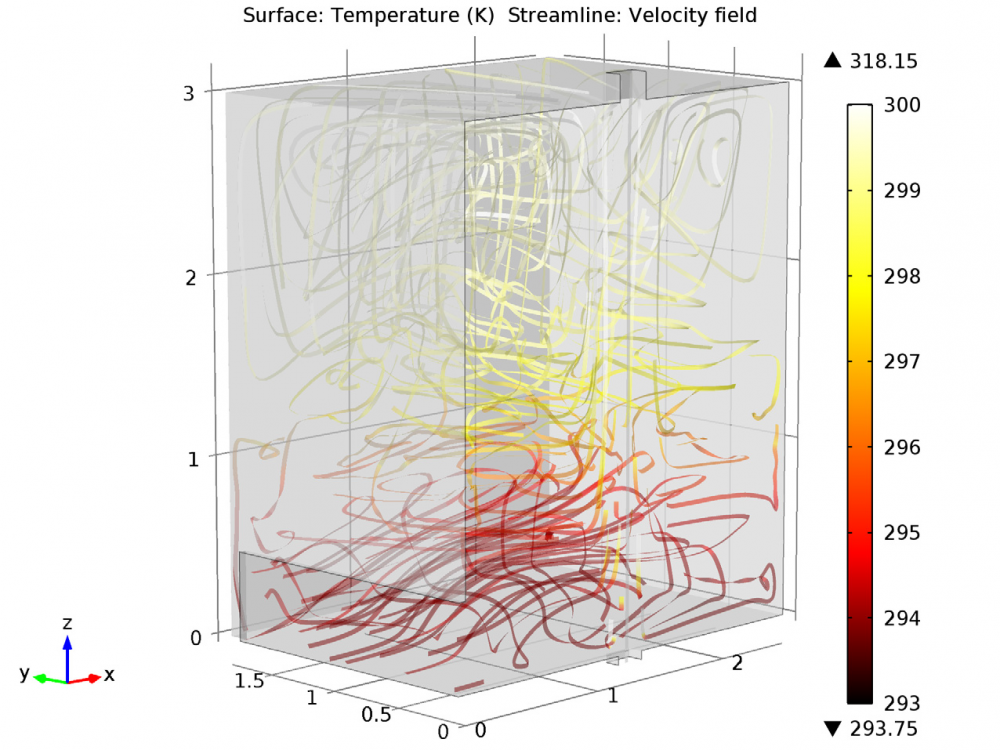
Modeling a Displacement Ventilation System
There are 2 different types of ventilation systems: mixing ventilation and displacement ventilation. Displacement ventilation is mainly found in offices, schools, and other public spaces.
